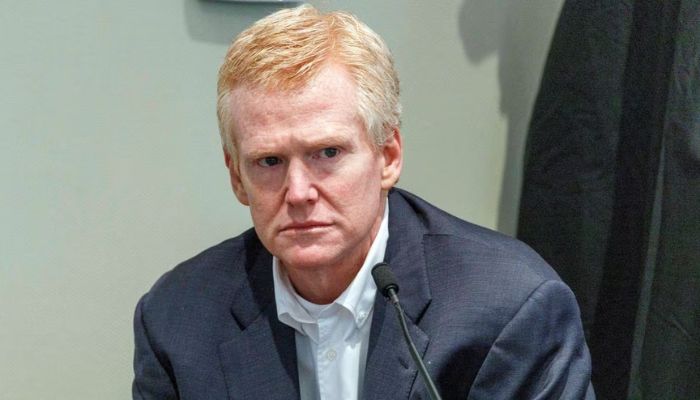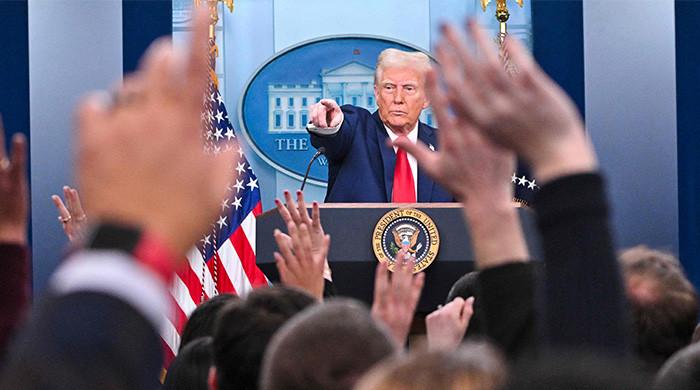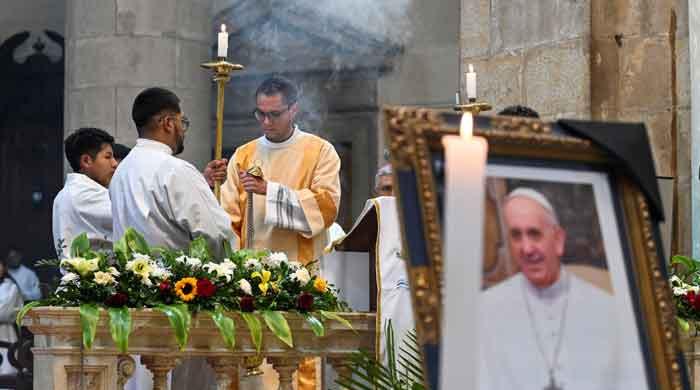Under pressure, Alex Murdaugh testifies to own theory in South Carolina murder trial
Richard "Alex" Murdaugh is a disbarred South Carolina lawyer on trial for the murder of his wife and son
February 25, 2023

Richard "Alex" Murdaugh, the disbarred South Carolina lawyer on trial for the murder of his wife and son, said on Friday that he believed someone angry about a deadly boating accident had committed the crimes, floating an alternative theory for the jury as two days of dramatic testimony came to a close.
Murdaugh offered the theory, for which he acknowledged he had no evidence, after hours of cross-examination during which a prosecutor laid out a string of lies told by the defendant, including about his alibi on the night of the killings.
Murdaugh, 54, has denied any involvement in the murders of his wife Maggie, 52, and 22-year-old son Paul, who were gunned down at close range at dog kennels on the family's estate on the evening of June 7, 2021. But he has admitted to deceiving law partners and clients out of huge sums of money to feed a drug habit, potentially undercutting his credibility with the jury.
From the stand, Murdaugh said he believed that someone upset over the death of 19-year-old Mallory Beach in a 2019 boating accident sought revenge on his son, who was charged with boating under the influence and other crimes in the incident.
Murdaugh said he was convinced someone was spurred to violence by a barrage of social media posts that made Paul, who he alternately referred to as Paw Paw, out to be a villain.
"The person or people who did what I saw on June the 7th — they hated Paul and they had anger in their heart," he said. "I believe that boat wreck is the reason Paw Paw and Maggie were killed."
In pre-trial court papers, prosecutors said that within seconds of officers arriving at the scene, Murdaugh suggested the boat accident was the likely motive. And at the beginning of the trial, the jury was shown body camera footage in which Murdaugh was recorded making remarks to that effect.
With Murdaugh's testimony complete, the jury was excused for the weekend. Murdaugh's lawyers plan to call four more witnesses on Monday, followed by one or two from the prosecution, setting the stage for closing arguments in the middle of next week.
Financial troubles
During roughly seven hours of cross-examination starting on Thursday afternoon, state prosecutor Creighton Waters sought to portray Murdaugh as caught up in a pattern of duplicity, while detailing his mounting financial troubles and drug use in the run-up to the murders.
In questioning from his lawyer, Murdaugh had admitted to lying by telling investigators that he was not at the kennels minutes before his wife and son were killed. He changed his account after the jury saw cellphone video, which contained audio of Murdaugh's voice placing him at the scene.
Murdaugh said he lied to investigators due to his distrust of the police and paranoia tied to his addiction to opioids.
"The second you’re confronted with facts you can’t deny, you immediately come up with a new lie," Waters said.
Influential family
Murdaugh, the scion of an influential South Carolina legal family, was indicted by a grand jury in July on two counts of murder and two counts of possession of a weapon. From the start, the case has been subject to intense media coverage given the political influence of the Murdaugh family in South Carolina.
Prosecutors have said Murdaugh killed his wife and child to generate sympathy and distract from an array of financial crimes for which he is also facing criminal charges. Murdaugh's lawyers have argued that motive does not make sense.
Murdaugh has acknowledged stealing from his law partners and clients, partly to fund an addiction to painkillers. On Friday, Murdaugh said he was taking more than 2,000 milligrams of oxycodone on some days, or more than 60 pills of 30 mg each.
"Opiates gave me energy. Whatever I was doing it made it more interesting. It made me want to do it longer," he said.
Murdaugh testified that he has sought to cooperate with the investigation, with the exception of lying about being at the kennels on the night of the shootings.
"Very cooperative except for maybe the most important fact of all: that you were at the murder scene with the victims just minutes before they died," prosecutor Waters said.
Waters compressed the timeline, getting Murdaugh to acknowledge that he was at the kennels some three minutes before investigators say Maggie and Paul were killed, and that their dogs had shown no sign of sensing anyone else around.











